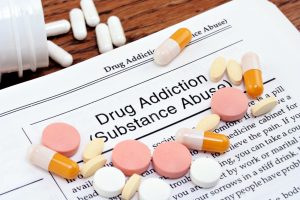
Written by Joseph Gilmore
With several people battling addiction and mental health, addiction and mental health present major global issues today.
For the general public, it’s crucial to understand the relationship between addiction and mental health. Moreover, it’s also important for the successful treatment and recovery of the user’s daily lifestyle.
Let’s delve into the complex relationship between addiction and mental health and provide insight on how to navigate these challenges. That said, if you’re facing any mental health issues, we strongly recommend professional insight to guide you through the right process for treatment and recovery.
What is Addiction, and How Does it Impact Someone’s Life?
Addiction is a chronic, overwhelming, and emotional condition characterized by a compulsion to engage in specific behaviors or consume substances, despite understanding their harmful consequences. Addiction affects people’s mental and physical health in undesirable ways.
In the United States, numerous Community Health Recovery Centers are dedicated to assisting individuals nationwide who are battling drug addiction. Ohio, in particular, is home to a number of these centers that prioritize providing effective treatment plans and comprehensive support. These centers recognize the significance of tailored care and offer a wide array of evidence-based treatments, therapy, and counseling services to address the unique circumstances of each individual. Emphasizing personalized approaches, Ohio Community Health Recovery Centers empower individuals to regain control of their recovery journey and work towards long-lasting well-being. These centers are essential resources within Ohio’s healthcare landscape, fostering a compassionate environment where individuals can find the support they need to overcome addiction and rebuild their lives.
Most of the time, addiction results in a lack of self-control, which in turn affects personal relationships with friends, family, and even one’s overall daily routine. Addiction, in general, can lead to serious financial, legal, and physical health problems.
Also, addiction worsens feelings of anxiety, depression, and other mental health problems. That’s why overcoming addiction requires an expert’s assistance and adherence to a complete treatment plan.
The Relationship Between Drug Addiction and Mental Health
The relationship between drug addiction and mental health reveals to you how important self-awareness and rehabilitation facilities are.
Recovery facilities play an important role in providing treatment to individuals battling addiction and mental health conditions alongside the support of friends and loved ones.
The Link Between Addiction and Mental Health
Addiction and mental health illnesses often coexist and can significantly impact one another. This connection is influenced by some factors, such as:
- Self-Medication: People struggling with mental health have a high chance of using illegal substances to self-medicate and deal with negative emotions like anxiety, depression, or trauma.
- Neurochemical Imbalance: Addiction and mental health problems can ruin the delicate normal balance of neurotransmitters in the brain, which can really increase the chance of co-occurring illnesses in your physical body.
- Genetic Predisposition: Most people are likely to get addicted to drugs because of their family genes. A family history of substance addiction or mental illness can significantly raise the chances of increasing these problems.
Common Co-occurring Disorders
- Anxiety Disorders: Health disorders like panic and social anxiety disorder usually come with addiction. Anxiety-related stress can motivate people to seek comfort through the use of drugs.
- Depression: Depression results from continued use of drugs. People use drugs or substances to numb their emotional anguish in the meantime or ease their feelings by getting high.
- Post-Traumatic Stress Disorder (PTSD): Traumatic experiences from the past can cause PTSD. It is causing people to self-medicate with drugs just to avoid disturbing dreams that are running through their heads.
Integrated Treatment Approaches
Integrated treatment approaches have been proven to be effective in the past years. They efficiently help address the complicated relationship between addiction and mental health.
- Dual Diagnosis Assessment: This is an assessment and diagnosis of addiction and mental health issues required to develop a tailored treatment strategy. It helps concurrently address the patient’s conditions.
- Comprehensive Therapies: Treatments such as cognitive-behavioral therapy (CBT), dialectical behavior therapy (DBT), and trauma-focused therapy are proven to help patients live healthier lives. They also help deal with traumatic situations and manage many health disorders simultaneously.
These treatments are recommended by experts for someone who is battling drug problems.
- Medication Management: In some cases, it can be helpful to use medication to treat mental health problems and speed up the recovery process. In fact, it’s highly recommended by mental health experts most of the time. That said, close medical expert supervision is needed to guarantee safe and effective use.
- Support Groups: Participating in support groups, such as 12-step programs or group therapy, can help people expand their knowledge and understanding. Peer support is also recommended for the long-term rehabilitation process.
A solid support system is essential in addition to professional treatment. This includes family, friends, or support groups that are used with the difficulties linked with addiction.
Seeking Professional Help: Recovery Centers and Addiction Treatment
Recovery centers are places specialized in offering full care for addiction and mental health problems. These recovery centers hire professionals with experience to help people with specific addictions and mental health issues.
Here are some of the following reasons why a rehab center is recommended:
- Expertise: Staff members at rehab centers specialize in addiction treatment. They have tons of experience in managing co-occurring mental health problems.
- Holistic Approach: Most recovery plans take what we call a “holistic” approach to treatment. This means that they focus more on the person’s physical, emotional, and mental health.
- Safe and Supportive Environment: Recovery centers are built to provide a safe and supportive environment. They also encourage healing and growth with proper treatment.
Why is Having a Strategy for Addiction Rehabilitation Important?
Recovery methods are important for a lot of different reasons. The first reason is to get help in stopping addiction and abuse of substances.
Secondly, the treatment for addiction offers a safe and supportive place for addicts or individuals with a history of substance abuse. They focus on minimizing the triggers and promoting healing. Rehabilitation facilities advise creating proper coping methods, improving relationships, and restoring individuals’ lives.
Lastly, when helping in rehab facilities that are battling addiction it’s more likely that the person will stay healthy. It also reduces the chance of a return or relapse, helping people get back to their normal lives and live a happy life without drug abuse.
Key Takeaways
There is a definite link between addiction and mental health and dealing with both is important for long-term healing. These said treatment methods help deal with these problems at the same time can help people heal and change in a better way.
Getting help from a rehabilitation center is the best way to get support and therapy. They can help individuals beat addiction and overcome other mental health problems.
People take charge of their lives, improve their health, and find a way to long-term recovery.
Remember that the first step toward a better and healthy future for someone with a drug problem is to get the correct information and help from experts.
By Joseph Gilmore
“Joseph Gilmore has been in the addiction industry for six years, including experience working with addiction treatment facilities all across the country. He is passionate about helping people learn more about the dangers of substance abuse and helping people get the assistance they need to fight back against addiction”
Please also review AIHCP’s Certificate Program for Substance Abuse Practitioner and see if it meets your academic and professional goals. These programs are online and independent study and open to qualified professionals seeking a four year certification.

